Fundraiser
Golden lawsuit: Willy Wonka stands trial for negligence
Dalhousie’s literary moot court brings laughter and ridiculousness to raise money for local charity
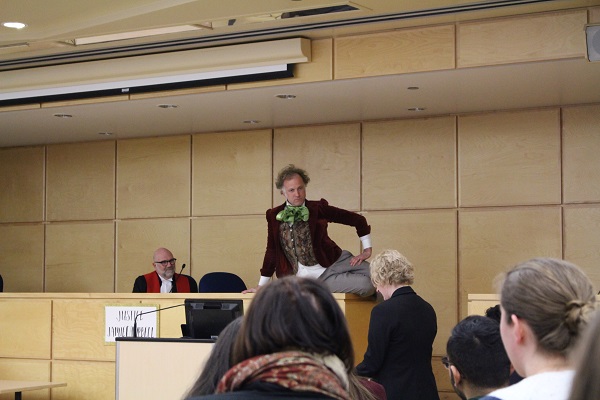
caption
Actor Ben Stone portraying Roald Dahl's Willy Wonka.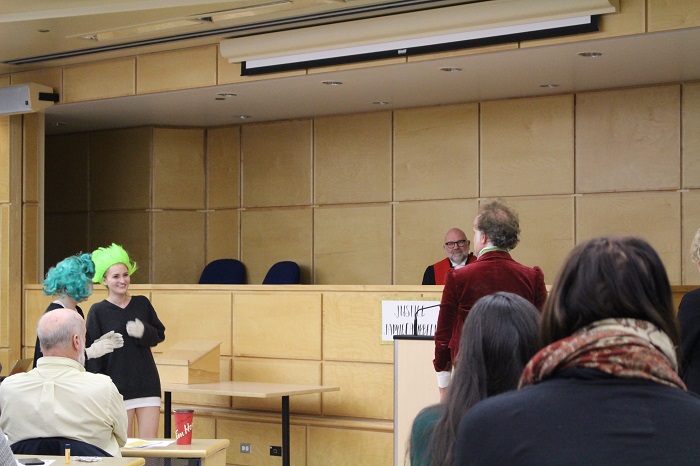
caption
Actor Ben Stone plays the character of Willy Wonka alongside some Oompa Loompas.You could hear roaring laughter throughout the Weldon Law Building Wednesday night as Dalhousie’s Schulich School of Law held its 7th annual literary moot court.
Dal’s literary moot court is a fundraiser for Halifax Humanities 101, which offers university-level education to adults living below the poverty line in Halifax.
Past years have included trials based on other literary classics such as Mary Shelley’s Frankenstein and Homer’s Odyssey. This year’s event brought one of Roald Dahl’s most beloved characters to trial, as his book Charlie and the Chocolate Factory was the basis for the fictional proceedings.
Dahl’s book tells the story of a secretive chocolate factory operated by Willy Wonka and a contest that allows a group of lucky children to tour the inside. As a result of greed, gluttony and arrogance, all of the children except the title character, Charlie, end up meeting an unfortunate end.
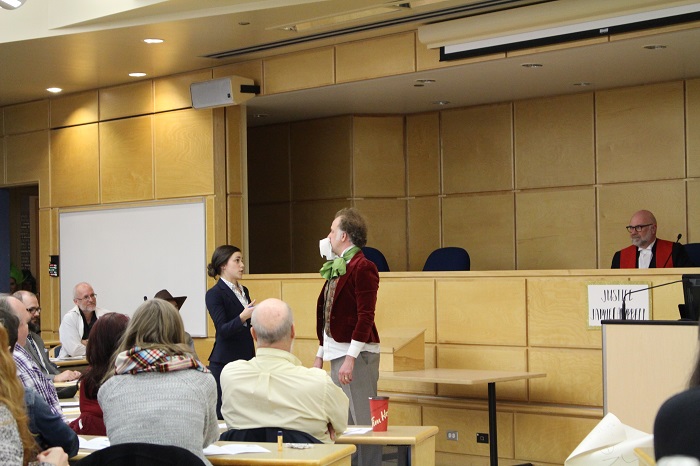
caption
Willy Wonka needed some tissues after a tough line of questioning during the trial.Wonka, played by actor Ben Stone, stood trial for negligence and was ultimately found not guilty. Jamie Campbell of the Nova Scotia Supreme Court presided over the fictional trial and had as much fun as the actors.
Campbell said that Johnny Depp’s version of the character “just became 85 per cent less creepy” after Stone’s Wonka serenaded him with a rendition of “Pure Imagination” from the 1971 film based on the book.
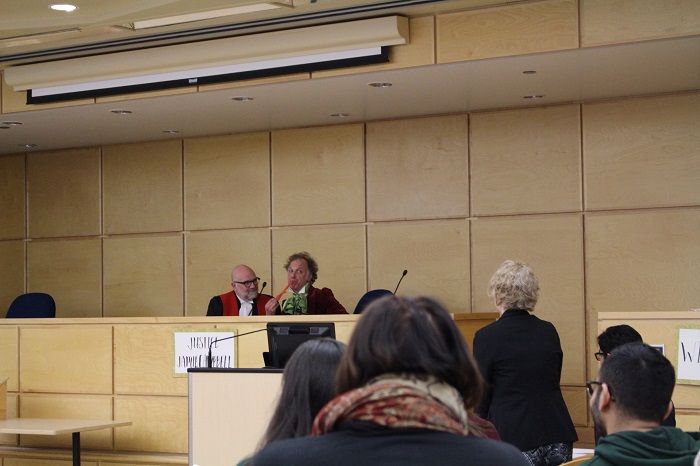
caption
Willy Wonka shows Justice Campbell how delicious his three course dinner chewing gum is.Law professors Jonathan Shapiro and Stephen Coughlan played the roles of Mike Teavee and Mr. Slugworth, respectively, while law student Jacob Ramsey Millar portrayed Charlie Bucket.
But it was Ben Stone who stole the show as Willy Wonka, bribing the jury with candy and somersaulting around the court room all night long. Stone’s performance was described as having “the physicality of a baby giraffe,” and Campbell referred to him as a “bat-shit crazy dude in a top hat.”
As mentioned, the main question of the evening was whether or not Willy Wonka was liable for the incidents that fell upon Augustus Gloop, Violet Beauregarde, Mike Teavee and Veruca Salt. Teavee was the representative plaintiff in this fictional class action lawsuit, having been shrunk to a miniature size while in the chocolate factory.
What ultimately decided the case was a giant waiver form presented to the court. One section was particularly pertinent to the proceedings, as it stated “we are not liable in the event of any liability,” and was directly followed with the signatures of all the children.
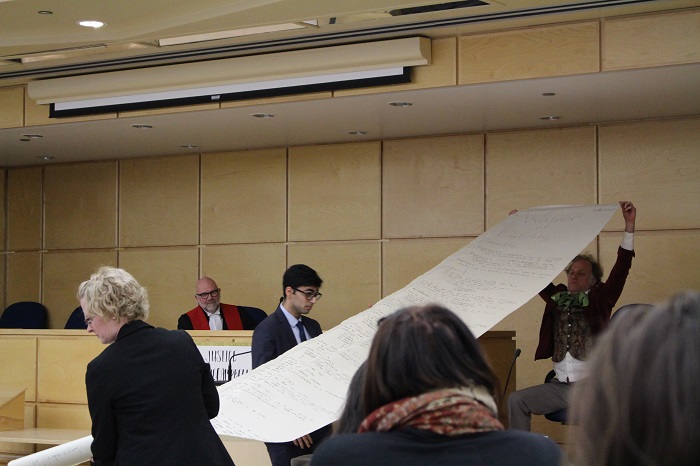
caption
Willy Wonka presents his waiver of liability to the moot court.Mary Lu Redden, director of Halifax Humanities, spoke before the trial got underway about how much the event meant to the charity. She told the story of how the literary moot court first got started seven years ago when law students at Dalhousie wanted to raise money for the charity.
“We’re so delighted that the law students put all this effort into putting this on for us. Our students are the beneficiaries,” she said. “This helps maintain our programs, so we can provide our students with what they need to study with us.”
After the event was over Millar said it was one of their most successful moots yet and thanked everyone for attending.
“It’s been a blast putting on this event and all of us in the lit moot society are so glad that it was enjoyed,” he said in a Facebook post.

